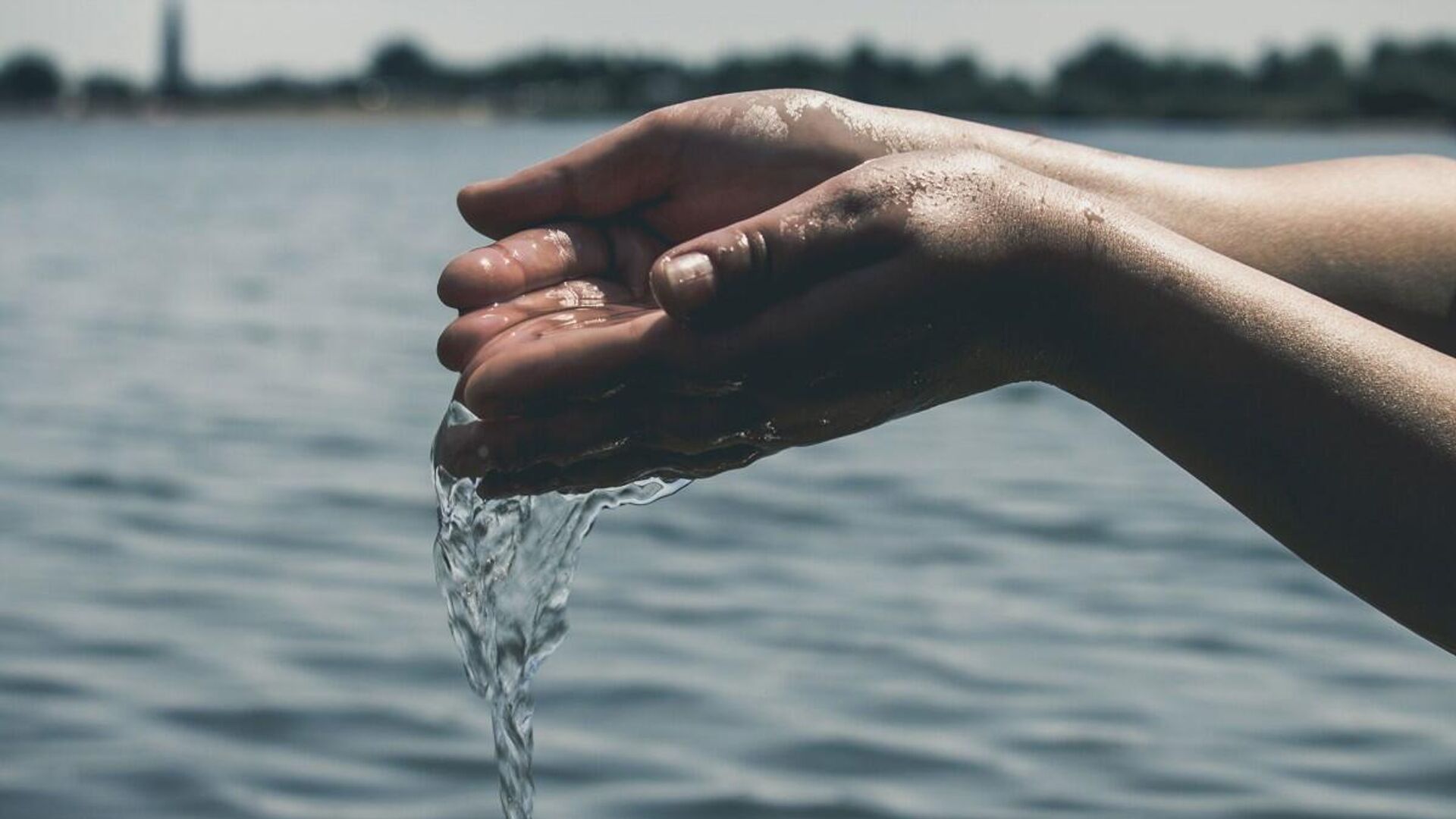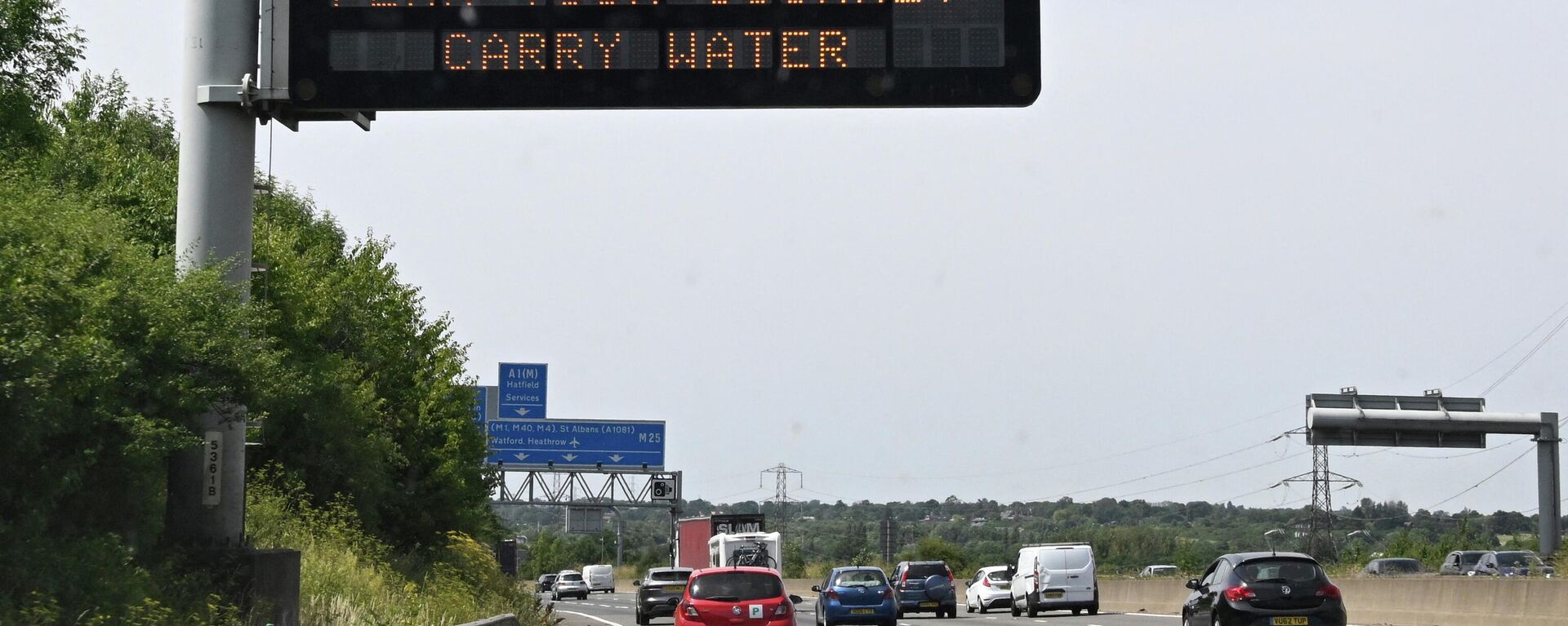https://sputnikglobe.com/20220731/calls-for-nationwide-hosepipe-ban--water-metering-ensue-in-uk-amid-summer-heat-1097975014.html
Calls for Nationwide Hosepipe Ban, Water Metering As UK Swelters In Record Heat
Calls for Nationwide Hosepipe Ban, Water Metering As UK Swelters In Record Heat
Sputnik International
National Infrastructure Committee chairman Sir John Armitt reportedly said that not spending money to deal with water leaks now would result in having to spend... 31.07.2022, Sputnik International
2022-07-31T09:26+0000
2022-07-31T09:26+0000
2023-05-28T15:20+0000
heat
water
infrastructure
united kingdom (uk)
https://cdn1.img.sputnikglobe.com/img/07e6/06/01/1095914430_0:0:1200:675_1920x0_80_0_0_e0c09cac22cc932e552829808801ea4c.jpg
Infrastructure advisers in the United Kingdom have warned that a hosepipe ban, along with compulsory water metering, should be introduced throughout the nation by the end of this decade, The Observer reports.According to the media outlet, about three billion liters of water get lost every day despite all the improvements to the water supply equipment in the country in recent years, with National Infrastructure Committee chairman Sir John Armitt suggesting that it would require investing about £20Bln to deal with the leaks.He reportedly warned that not investing now may result in much larger sums of money being spent on providing bottled water to residents across the country during droughts that will occur more and more frequently.Government bodies in the UK are reportedly considering a number of schemes that might help improve the situation, including creating a series of new reservoirs and projects that would allow transferring water from the north of England - where water supplies are “not stressed” - to the south where water is scarcer.However, these schemes are expected to cost billions and are “unlikely to be implemented in the next decade,” the media outlet explained.This development comes as the UK Meteorological Office announced that July 2022 was “the driest July in England since 1911”.Mark McCarthy, head of the Meteorological Office's National Climate Information Centre, observed that every month so far this year, apart from February, has been “drier than average in the UK”, and that there seems to be a trend towards hotter and drier summers for the country.
https://sputnikglobe.com/20220718/extreme-heat-waves-in-uk-may-become-commonplace-by-end-of-century-chief-meteorologist-warns-1097418251.html
united kingdom (uk)
Sputnik International
feedback@sputniknews.com
+74956456601
MIA „Rossiya Segodnya“
2022
News
en_EN
Sputnik International
feedback@sputniknews.com
+74956456601
MIA „Rossiya Segodnya“
Sputnik International
feedback@sputniknews.com
+74956456601
MIA „Rossiya Segodnya“
heat, water, infrastructure, united kingdom (uk)
heat, water, infrastructure, united kingdom (uk)
Calls for Nationwide Hosepipe Ban, Water Metering As UK Swelters In Record Heat
09:26 GMT 31.07.2022 (Updated: 15:20 GMT 28.05.2023) National Infrastructure Committee chairman Sir John Armitt reportedly said that not spending money to deal with water leaks now would result in having to spend even more money to provide people with bottled water.
Infrastructure advisers in the United Kingdom have warned that a hosepipe ban, along with compulsory water metering, should be introduced throughout the nation by the end of this decade, The Observer reports.
According to the media outlet, about three billion liters of water get lost every day despite all the improvements to the water supply equipment in the country in recent years, with National Infrastructure Committee chairman Sir John Armitt suggesting that it would require investing about £20Bln to deal with the leaks.
“You have to pay for it, one way or another,” Armitt said. “That could be investing in new reservoirs or moving water around the country, as well as stopping leaks.”
He reportedly warned that not investing now may result in much larger sums of money being spent on providing bottled water to residents across the country during droughts that will occur more and more frequently.
“What we are seeing now is that climate impacts in terms of more extreme weather events are happening more frequently and at a greater magnitude than was anticipated,” said Martin Baxter of the Institute of Environmental Management and Assessment. “We have really got to become more resilient to what we know is on the way.”
Government bodies in the UK are reportedly considering a number of schemes that might help improve the situation, including creating a series of new reservoirs and projects that would allow transferring water from the north of England - where water supplies are “not stressed” - to the south where water is scarcer.
However, these schemes are expected to cost billions and are “unlikely to be implemented in the next decade,” the media outlet explained.
This development comes as the UK Meteorological Office announced that July 2022 was “
the driest July in England since 1911”.
Mark McCarthy, head of the Meteorological Office's National Climate Information Centre, observed that every month so far this year, apart from February, has been “drier than average in the UK”, and that there seems to be a trend towards hotter and drier summers for the country.


